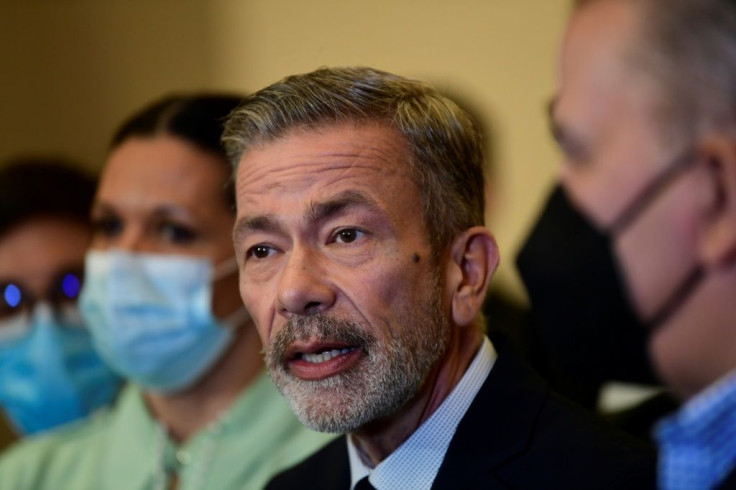Venezuela Political Rivals Narrow Differences At Mexico Talks
Venezuela's government and opposition on Monday found common ground on two fronts, including the country's pandemic response, in a tentative step towards ending a long-standing political crisis.
The signing of two "partial agreements" came after representatives of President Nicolas Maduro and opposition leader Juan Guaido held four days of talks in Mexico City mediated by Norway.
They agreed to meet again on September 24 to 27, with the key issues of elections and sanctions still to be resolved.
The accords involve social protection -- including dealing with the coronavirus -- and Venezuela's stance on a disputed border area controlled by Guyana.
"The parties agreed to establish mechanisms for restoring and obtaining resources to meet the needs of the Covid-19 pandemic, including those from multilateral organizations," a joint statement said.
That includes drawing on funds from the International Monetary Fund, head government negotiator Jorge Rodriguez said.
The two sides agreed to each "designate three representatives to form a National Board of Social Care to address the areas of health and food," according to the joint statement.
Chief opposition representative Gerardo Blyde said that it was "important for all of us to have achieved a space that we hope will be depoliticized to agree on all these measures in humanitarian matters."
He added: "We will do everything in our power, each one of the parties, to obtain funds for humanitarian matters."

The two sides also agreed Venezuela has a "historic and inalienable" claim to Guyana's Essequibo region, the focus of a century-old dispute.
Venezuelan prosecutors have previously accused Guaido of treason for allegedly plotting to hand over Essequibo to multinational companies.
A warning from Maduro on Sunday that the negotiations would not result in "impunity" was seen as a warning to the opposition leader, who faces multiple accusations in Venezuela.
Maduro welcomed the outcome of the talks as "a success for Venezuelans," while Guaido said that progress on the humanitarian front would help to save lives.
"We are clear that the tragedy in our country requires not only urgent attention, but also fundamental solutions for which we are fighting," Guaido tweeted.
The talks have a seven-point agenda including electoral guarantees, easing sanctions and political rights -- but not the departure of Maduro, accused by the opposition of fraudulent reelection in 2018.
The main opposition alliance announced last week that it would end a three-year election boycott and take part in mayoral and gubernatorial polls in November.
Neither Maduro nor Guaido, who is considered president by about 60 countries, personally attended the closed-door meetings.
Previous negotiations in the Dominican Republic in 2018 and Barbados the following year failed to resolve the crisis that has marked Maduro's eight-year rule.
© Copyright AFP 2024. All rights reserved.





















